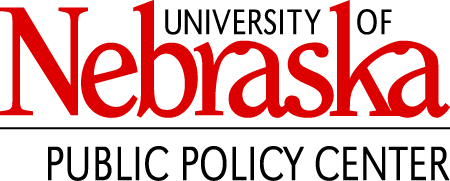Great Plains Disaster Behavioral Health Conference
The Great Plains Disaster Behavioral Health Conference is for psychiatrists, psychologists, social workers, mental health care providers, public health officials, nurses, clergy, emergency managers, and first responders to learn and recognize how to prepare and respond to the psychological effects of disaster and mass casualties.
2018 Conference
Building Resilient Communities
The University of Nebraska Public Policy Center (NUPPC) is approved by the American Psychological Association to sponsor continuing education for psychologists. The NUPPC maintains responsibility for this program and its content. Application has been made for 5.25 hours of APA approved Continuing Education.
July 20, 2018
Hilton Omaha
1001 Cass Street
Omaha, Nebraska 68102
Objectives
1
Recognize the importance of cultural inclusion and how inclusiveness increases community resilience.
2
Identify the role of faith organizations in promoting community resiliency.
3
Examine the critical elements of social connection in disaster preparedness, response and recovery.
4
Discuss ethical considerations and challenges in providing disaster behavioral health services to a community.
Conference Speakers
Kimberly Nelson, LAC, MPA
Regional Administrator, Region 7, Substance Abuse and Mental Health Services Administration
DeeDee Bennett, Ph.D.
Assistant Professor, Emergency Services Program in the School of Public Administration at the University of Nebraska – Omaha
Disaster Vulnerability and Understanding Community
Participants will learn the definition and steps of cultural competency, the complexity of communities and the relationship between vulnerability and resilience. With a focus on social vulnerability in the United States, the presentation will end with new ideas for practice and considerations for empowerment and building community capacity.
David J. Carter, Ph.D.
Peter Kiewit Professor and Clinical Coordinator in the graduate program of Counselor Education at the University of Nebraska – Omaha
He is a past Chairperson and member of the Professional Ethics Committee for the American Counseling Association and the Nebraska Counseling Association. He has served as an ethics consultant at the federal, state, and local levels fort over 30 years.
How Behavioral Health Should React Ethically in a Disaster
Professionals will explore the key ethical principles that form the basis of our actions and reactions during a disaster, our code of conduct, the different crisis standards of care, and ethical approaches to the allocation of scarce resources and triage. We will also discuss prevention and intervention community strategies critical to ethical and legal mandates.
Peter B. Gudaitis, M.Div.
President of the National Disaster Interfaith Network (NDIN), Executive Director and CEO of New York Disaster Interfaith Services (NYDIS), and Chair of New York VOAD (Voluntary Organizations Active in Disaster)
He has over 30 years of experience in chaplaincy, disaster emergency management, faith-based philanthropy, program management, and social services administration – including almost a decade in Emergency Medical Services. Mr. Gudaitis holds a B.A. from Kenyon College, and a M.Div. from the General Theological Seminary of the Episcopal Church.
The Role of Disaster Spiritual Care and Religious Literacy & Competency in Building Resilient Whole Communities
A look at the American religious landscape and the evolving role that religious literacy and competency play in building disaster resilience whole communities. Followed by an overview of current disaster spiritual care models, methodologies and practices – including rogue and harmful practices. Including an introduction to National VOAD (Voluntary Organizations Active in Disaster), State VOAD and local emotional and spiritual care tools, structures, systems, and interventions – and, recommendations on how public health and mental health practitioners can build and sustain partnerships with communities and their trained/credentialed caregivers.
Brian Houston, Ph.D.
Associate Professor and Chair in the Department of Communication at the University of Missouri and Director for the Disaster and Community Crisis Center (DCC) at the University of Missouri
He is Core Faculty in the University of Missouri Master of Public Health Program. Houston’s research focuses on communication at all phases of disasters and on the mental health effects and political consequences of community crises. Recent and current research projects have examined the impact of media coverage of terrorism on children and adults, the role of new media during disasters, and the capacity for using information communication technologies to increase community resilience.
Fostering Community Resilience to Disasters Before and After Events
This session will describe several theoretical models of community resilience, discuss recent research on community resilience, and will review tools and processes to foster community resilience. Participants will be encouraged to share their experiences in fostering community resilience before or after a disaster, crisis, or other challenge.
Conference Materials
Contacts
University of Nebraska Public Policy Center
Disclaimer
This website is part of a coordinated effort on behalf of the U.S. Federal Government and the Nebraska Department of Health and Human Services Division of Public Health, Division of Behavioral Health, and the University of Nebraska Public Policy Center. Funding was made possible [in part] by U3REP190555 from the Office of the Assistant Secretary for Preparedness and Response (ASPR). The views expressed in written materials or publications do not necessarily reflect the official policies of the U.S. Department of Health and Human Services or the Nebraska Department of Health and Human Services, Division of Public Health; nor does mention of trade names, commercial practices, or organizations imply endorsement by the U.S. Government or the State of Nebraska.








